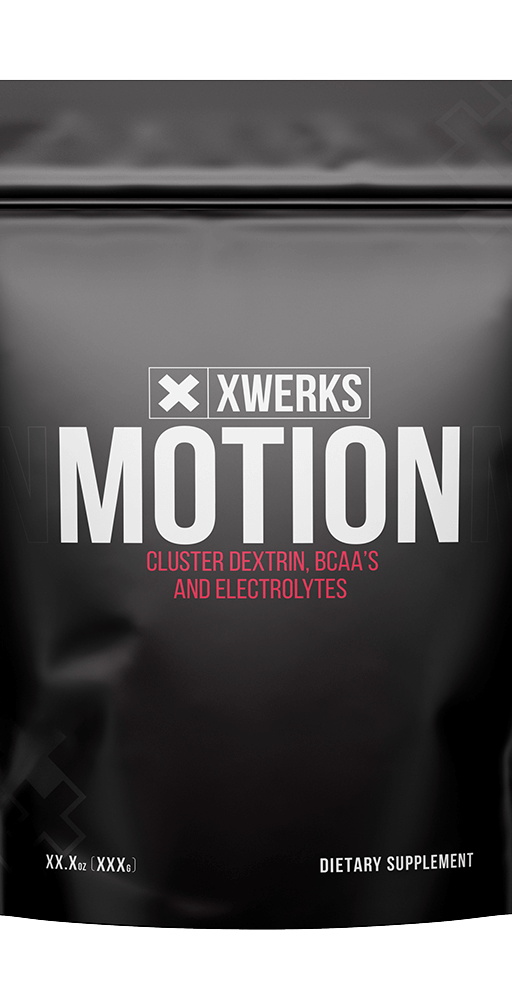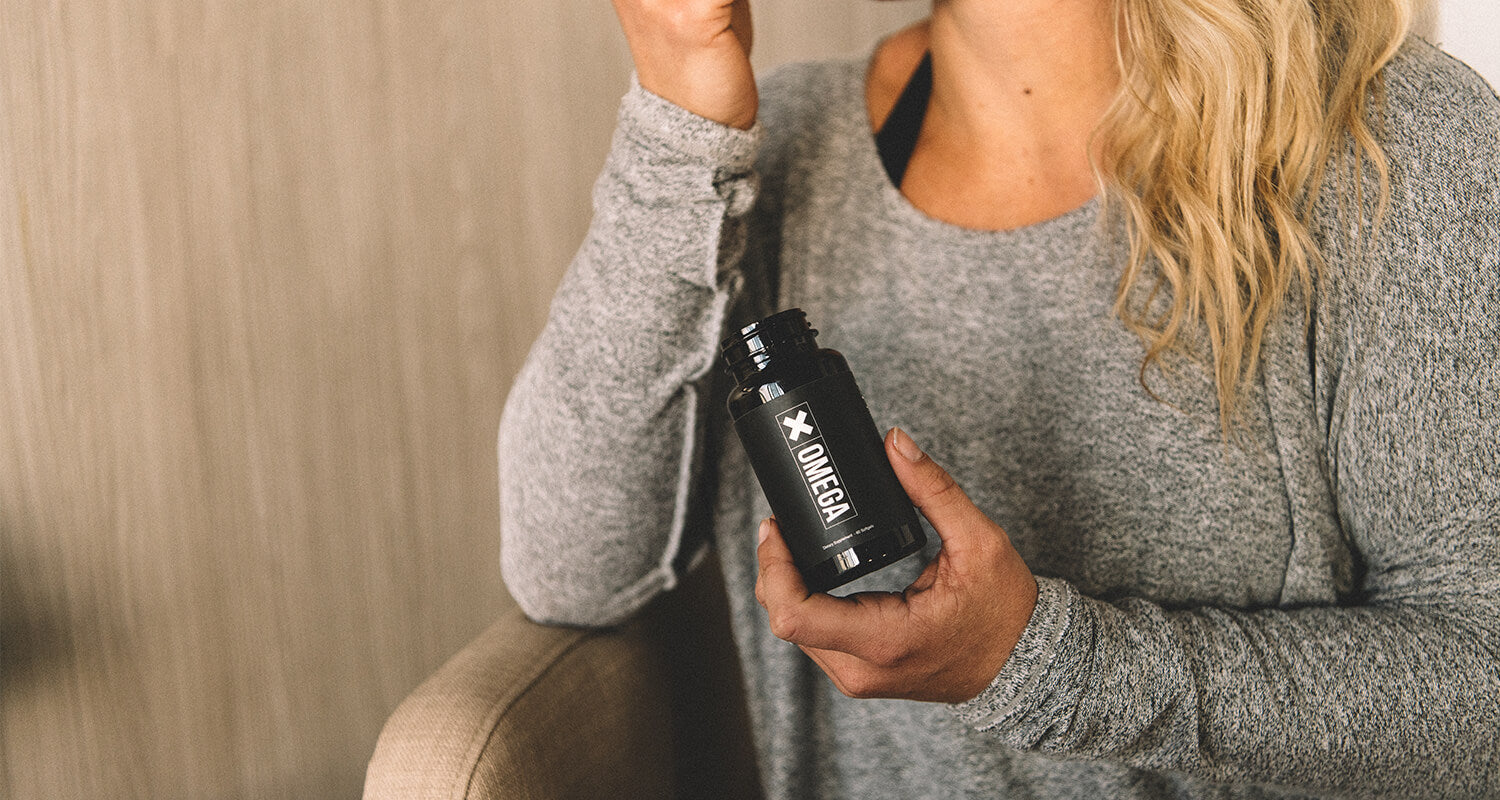You’ve probably heard of antioxidants before. They’re compounds that protect our cells from damage, and they’re one of the most popular categories of supplements on the market. While these compounds are found extensively in fruits and veggies, many people choose to supplement with them to maximize their benefits.
People use antioxidant supplements for a variety of reasons, including improving the health and appearance of skin, speeding up recovery from illness or injury, protecting against disease, enhancing longevity, and supporting optimal health and cognition.
The most well-known antioxidant is vitamin C, which people will pop continuously during cold season to try and prevent a long-lasting period of sniffles and sneezing. In spite of its popularity, vitamin C isn’t among the strongest antioxidant supplements on the market. One of the most powerful antioxidants found in nature is something that few of us have ever heard of: astaxanthin.
Free Radical Damage: Why We Need Antioxidants
Every day, your cells are under attack from compounds called free radicals. Free radicals are unstable molecules or atoms that, unless they’re stopped in their tracks, can damage or kill cells found throughout our bodies. There are two types of free radicals: reactive oxygen species (ROS) and reactive nitrogen species (RNS).
Free radical production is a natural process in the body that occurs simply from being alive. For instance, free radicals are formed as our cells produce energy for movement. However, there are certain activities that create excess free radical formation. Higher free radical damage (also known as oxidative damage) is associated with things like eating unhealthy foods (think processed, packaged, or fried foods), excess sun exposure, smoking cigarettes, pollution exposure, drinking alcohol, or experiencing high levels of stress.
It’s this free radical damage that’s largely responsible for signs of the aging process, including wrinkly, saggy skin, chronic diseases like cardiovascular disease, and memory troubles.
Fighting Free Radical Damage: Lifestyle and Antioxidants
If you’re like me, you’re probably wondering what you can do to protect yourself from cellular damage caused by free radicals. It’s what you eat, what supplements you take, and how you live that determines not only how much free radical damage you’re exposed to, but also how well your body can resist this damage.
When it comes to diet and supplements, certain nutrient-dense foods contain antioxidant compounds, or compounds that counteract the damage caused by free radicals. Foods particularly high in antioxidants are colorful fruits and veggies. It’s these antioxidants that are packaged into nutritional supplements as a simple and powerful source of all-natural antioxidants.
As for lifestyle, exercise, low-stress, and general happiness support natural processes inside of the body that quell free radicals. For example, each of our bodies is capable of creating certain antioxidant enzymes (body chemicals that fight oxidative damage) that help protect our cells, and when we are emotionally and physically well, we experience higher antioxidant enzyme activity.
But it’s taking in external antioxidants in supplemental form that many of us concentrate on as a way to increase the antioxidant activity in our bodies.
Astaxanthin: A Super Antioxidant
One powerful class of antioxidants are called carotenoids, which are pigments that contribute to the red, orange, and yellow colors in fruits, veggies, and seafood. These phytonutrients, which are plant compounds that are beneficial for human health, are even found in high concentrations in some types of algae, bacteria, and fungi.
Astaxanthin is one of the most powerful antioxidants that belongs to the carotenoid family. In fact, researchers found that it was ten times as strong in free radical scavenging activity when compared to the commonly supplemented carotenoids beta-carotene and lutein.
This antioxidant is a natural red pigment that’s found in high concentrations in certain types of algae and seafood, including wild salmon, krill, shrimp, and lobster. Supplemental astaxanthin is usually sourced from certain species of algae or yeast.
Astaxanthin supplements are used to help benefit human health and performance in a surprising variety of ways. Here are some of the most promising benefits of astaxanthin supplementation in humans.
- Boosts Physical Performance
In a human study published in the International Journal of Sports Medicine, 21 competitive cyclists were randomly assigned to either a 4 mg/day astaxanthin group or placebo group for 28 days. Significant improvements were found in the astaxanthin group when compared to the placebo group in a 20 km time trial and power output.
What’s more, early research has found that astaxanthin can improve the function of our mitochondria, the powerhouse of our cells. Mitochondria are responsible for providing energy to our muscles while we work out, and thus boosting their efficacy might improve how well and for how long we can perform.
- Supports Skin Health and Appearance
Multiple human studies have found this antioxidant to contain cosmetic benefits. In a 2012 study, 8 weeks of oral supplementation plus topical application of astaxanthin improved the appearance of age spots, wrinkles, texture, moisture content, and skin elasticity in a group of 30 females. And in 36 males, 6 weeks of oral supplementation improved skin wrinkles, elasticity, and transepidermal water loss. Additionally, topical application has demonstrated an ability to protect against UV damage from sunlight.
- Strengthens Cardiovascular Health
Taking supplemental astaxanthin might benefit your heart health through protecting from atherosclerosis and improving cholesterol levels, both of which can contribute to the risk of developing cardiovascular disease.
- Enhances Sleep Quality
Astaxanthin has an ability to chelate minerals, which might help our bodies absorb zinc, a mineral that has been shown to help reduce the time it takes to fall asleep and improve sleep efficiency. In a 2017 human study, those who took zinc plus astaxanthin tended to fall asleep faster than those in the placebo group.
- Preserves Eye Health and Vision as We Age
Early studies suggest that astaxanthin might help preserve our vision and eye health as we grow older. In an animal study, this antioxidant was able to protect retinal calls in the eye from oxidative damage. While more human studies are needed, one study that included this antioxidant and other nutrients found a reduction in eye strain in adults.
- Treats Neurodegenerative Diseases
Because this antioxidant can easily cross the blood-brain barrier, scientists have been examining its effects on neurodegenerative diseases like Alzheimer’s disease and Parkinson’s disease. In many of these diseases, high levels of oxidative damage are implicated in disease severity and progression. Thanks to astaxanthin’s ability to protect neurons from oxidative damage, it might help to protect neurons in those with neurodegenerative diseases, possibly lessening disease severity.
- Improves Male Fertility
In a small human study of 30 men with fertility difficulties, 16 mg/day astaxanthin was found to positively impact fertility and sperm parameters. While more human studies are needed before conclusions can be drawn, this study provides reason to believe that this powerful antioxidant might help boost male fertility.
- Strengthens the Immune System
In healthy females, astaxanthin was found to modulate the immune response in a way that might boost overall health. These benefits are thought to be due to antioxidant and anti-inflammatory effects. Researchers believe that this effect might be beneficial to those with cancer and other chronic diseases, although more research is needed to be certain.
How to Take Astaxanthin: Natural Sources and Supplemental Dosage
If you want to up your intake of this powerful phytonutrient through diet alone, it’s best to up your intake of wild-caught salmon, shrimp, and lobster. However, if you want to experiment and see if this antioxidant can help if you supplement daily, you can either add in an astaxanthin supplement or krill oil.
High-quality krill oil specifically has high concentrations of naturally occurring astaxanthin combined with healthy omega-3 fatty acids. Try XWERKS Omega supplements, which contain only the best quality, sustainably sourced, pure Atlantic krill oil.
Learn more about krill oil
You can also find astaxanthin supplements that are sourced from algae, which are a great alternative to krill oil for vegans and vegetarians. There is no recommended daily dosage, but studies have found humans to benefit from 4 to 40 mg daily from a period ranging from 12 weeks to one year.
If you do take this type of supplement, be sure to take it with food to enhance its absorption. Because astaxanthin is a fat-soluble compound, it shouldn’t be taken with only water unless it’s in the form of krill oil.

Final Thoughts
Astaxanthin might just be the most powerful antioxidant that you’ve never heard of. Thanks to its antioxidant and anti-inflammatory abilities, it might help to improve your athletic performance and boost your health for years to come.























